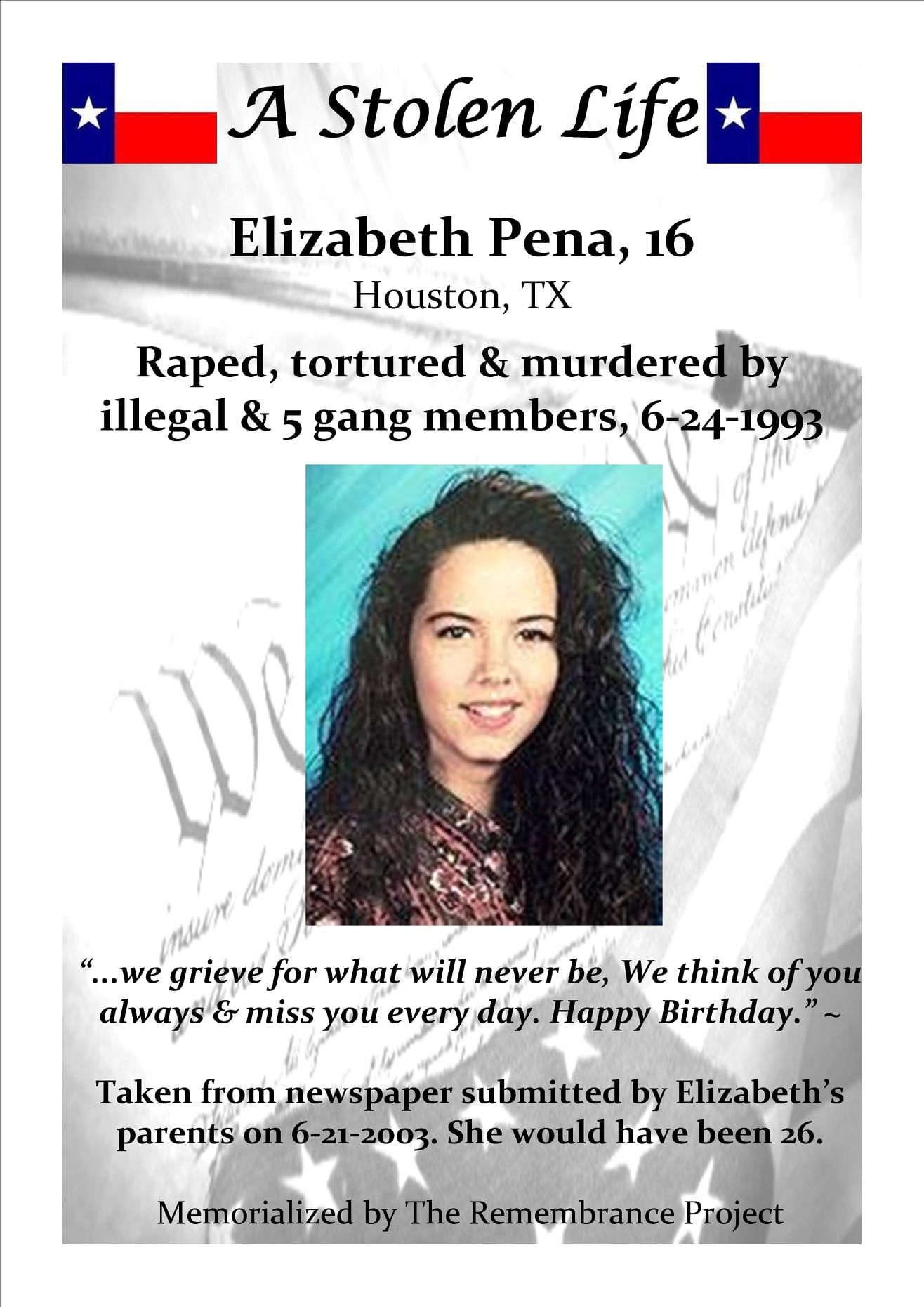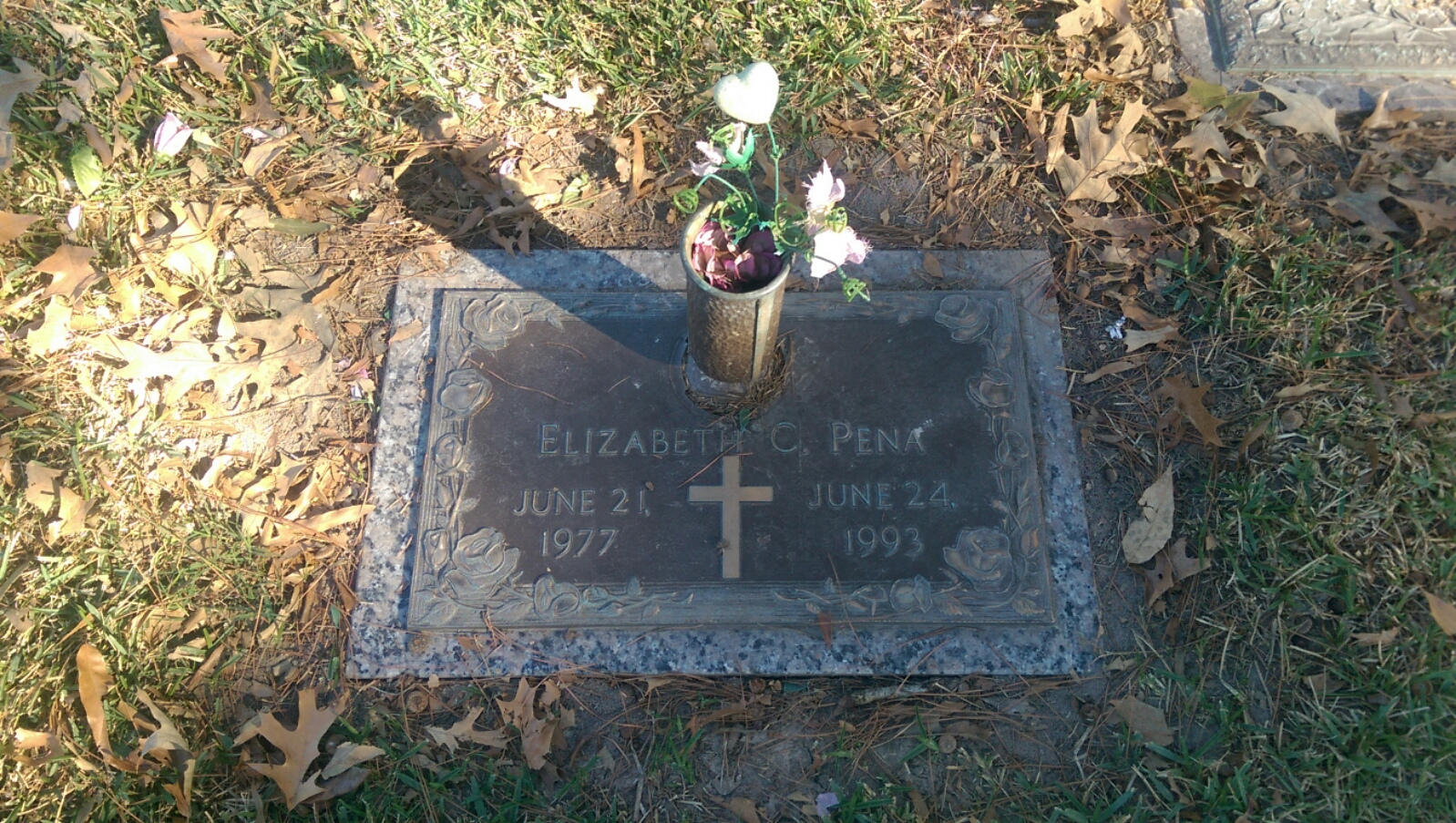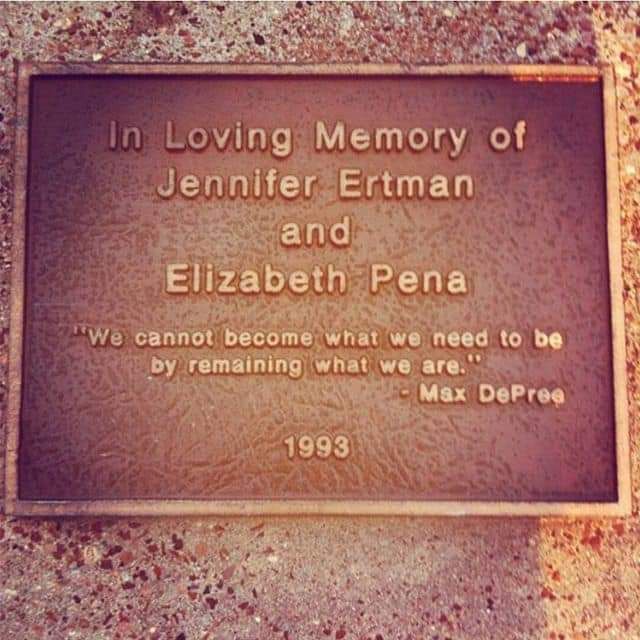Elizabeth was just 16 years old when she met a fate that none could imagine in their worst nightmares. In 1993, in TC Jester Park in Houston, she and her friend Jennifer were taken from this world in an act of senseless brutality. Their young lives were cut short by a group of gang members who attacked, raped, and strangled them to death.
It is harrowing to imagine the fear and pain Elizabeth must have experienced in those final moments. Yet, as we reflect upon her life and the tragic circumstances of her passing, it is essential to remember the joy and happiness she brought to her loved ones and the lessons she indirectly imparted upon a larger community.
Elizabeth was at an age where life promises so much. A threshold to womanhood, where dreams are formed, where every day brings the possibility of a new adventure, a new learning, a new friend. She might have dreamt of college, of love, of travel, or of a fulfilling career. Her parents, Melissa and Adolph Peña, have spoken of her with a warmth that suggests she was full of life, full of potential.
The cruelty of her death is magnified by the thought of all the things she was yet to experience. The heartaches and the joys, the challenges and the triumphs, all the myriad of experiences that make life the vibrant and unpredictable journey that it is.
However, even in death, Elizabeth's story did not end. It transformed, it grew, and it resonated. Her story became a catalyst for change, for justice, and for understanding the depth of loss and the value of a human life.
Crime Stoppers' Andy Kahan said, "Jinny and Elizabeth became everyone's daughter." His words encapsulate the sentiment of many who came to know of Elizabeth's story. It highlighted the universal bond of humanity, which transcends geographic boundaries and familial ties. Elizabeth became a poignant reminder that our society, no matter how advanced, still has shadows that need addressing.
Her case was pivotal. It was instrumental in bringing about significant changes in the legal system, emphasizing the importance of victims and their families. One such change was allowing victims to have a say in the courtroom, giving them a voice, ensuring they are not merely statistics or footnotes in the annals of crime but are recognized for the lives they lived and the impact of their loss. Another change, controversial though it may be, was the right to witness executions. Elizabeth's father, Adolph Peña, described witnessing the execution of three of the perpetrators as "probably the happiest day of my life." This profound statement underscores the depth of pain experienced by families of victims and the desperate yearning for justice, closure, and some semblance of balance.
Elizabeth's passing also reignited discussions around justice, particularly the death penalty. Two of the culprits had their sentences commuted to life, with another given 40 years due to his age at the time of the crime. Such decisions are never easy, reflecting the moral, ethical, and emotional challenges surrounding such judgments.
Back at their home, Elizabeth's parents keep her memories alive with photos adorning their walls. Though time moves on, for them, it seems to have paused, frozen at a moment when their beloved daughter was still with them. These pictures are not just remembrances of Elizabeth but are also symbols of strength, resilience, and undying love.
Adolph Peña's hope is that no one forgets what happened to his daughter. He said, "I don't think anyone is ever going to forget this case, not as long as I live, but I hope the girls will be remembered for a long, long time – they deserved it." These words emphasize the importance of collective memory. Memorials, like the benches at TC Jester Park, serve as tangible reminders of the two young lives cut short and the duty of society to ensure their stories are never forgotten.
As we pay tribute to Elizabeth Peña, let us remember her not just for the tragedy that befell her but for the life she lived and the profound impact she has had on so many. Elizabeth's story is a stark reminder of the fragility of life and the need to cherish every moment. Her legacy serves as a beacon for change, justice, and the eternal power of remembrance.
May her soul rest in peace, and may her story continue to inspire and evoke compassion, driving us towards a more just and empathetic world.
Written by: Alan Owen
Elizabeth was just 16 years old when she met a fate that none could imagine in their worst nightmares. In 1993, in TC Jester Park in Houston, she and her friend Jennifer were taken from this world in an act of senseless brutality. Their young lives were cut short by a group of gang members who attacked, raped, and strangled them to death.
It is harrowing to imagine the fear and pain Elizabeth must have experienced in those final moments. Yet, as we reflect upon her life and the tragic circumstances of her passing, it is essential to remember the joy and happiness she brought to her loved ones and the lessons she indirectly imparted upon a larger community.
Elizabeth was at an age where life promises so much. A threshold to womanhood, where dreams are formed, where every day brings the possibility of a new adventure, a new learning, a new friend. She might have dreamt of college, of love, of travel, or of a fulfilling career. Her parents, Melissa and Adolph Peña, have spoken of her with a warmth that suggests she was full of life, full of potential.
The cruelty of her death is magnified by the thought of all the things she was yet to experience. The heartaches and the joys, the challenges and the triumphs, all the myriad of experiences that make life the vibrant and unpredictable journey that it is.
However, even in death, Elizabeth's story did not end. It transformed, it grew, and it resonated. Her story became a catalyst for change, for justice, and for understanding the depth of loss and the value of a human life.
Crime Stoppers' Andy Kahan said, "Jinny and Elizabeth became everyone's daughter." His words encapsulate the sentiment of many who came to know of Elizabeth's story. It highlighted the universal bond of humanity, which transcends geographic boundaries and familial ties. Elizabeth became a poignant reminder that our society, no matter how advanced, still has shadows that need addressing.
Her case was pivotal. It was instrumental in bringing about significant changes in the legal system, emphasizing the importance of victims and their families. One such change was allowing victims to have a say in the courtroom, giving them a voice, ensuring they are not merely statistics or footnotes in the annals of crime but are recognized for the lives they lived and the impact of their loss. Another change, controversial though it may be, was the right to witness executions. Elizabeth's father, Adolph Peña, described witnessing the execution of three of the perpetrators as "probably the happiest day of my life." This profound statement underscores the depth of pain experienced by families of victims and the desperate yearning for justice, closure, and some semblance of balance.
Elizabeth's passing also reignited discussions around justice, particularly the death penalty. Two of the culprits had their sentences commuted to life, with another given 40 years due to his age at the time of the crime. Such decisions are never easy, reflecting the moral, ethical, and emotional challenges surrounding such judgments.
Back at their home, Elizabeth's parents keep her memories alive with photos adorning their walls. Though time moves on, for them, it seems to have paused, frozen at a moment when their beloved daughter was still with them. These pictures are not just remembrances of Elizabeth but are also symbols of strength, resilience, and undying love.
Adolph Peña's hope is that no one forgets what happened to his daughter. He said, "I don't think anyone is ever going to forget this case, not as long as I live, but I hope the girls will be remembered for a long, long time – they deserved it." These words emphasize the importance of collective memory. Memorials, like the benches at TC Jester Park, serve as tangible reminders of the two young lives cut short and the duty of society to ensure their stories are never forgotten.
As we pay tribute to Elizabeth Peña, let us remember her not just for the tragedy that befell her but for the life she lived and the profound impact she has had on so many. Elizabeth's story is a stark reminder of the fragility of life and the need to cherish every moment. Her legacy serves as a beacon for change, justice, and the eternal power of remembrance.
May her soul rest in peace, and may her story continue to inspire and evoke compassion, driving us towards a more just and empathetic world.
Written by: Alan Owen

















